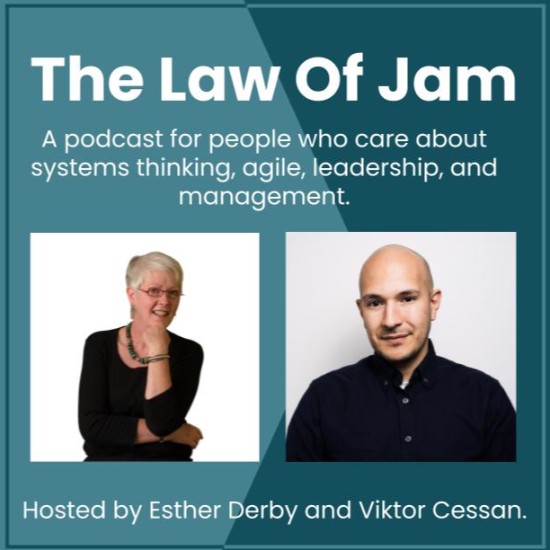Sometimes, when I hear people talking about “resources,” I ask if the speaker means people. When I do, the responses fall into three groups.
Some people look a bit blank for a moment, as if coming out of a trance. They realize resources isn’t the term they want. They know that people do work. They’ve fallen into the habit from hearing the term repeated over and over in their organizations.,
Other people respond with a brush off, as if only an idiot would ask such a question.
A third group switch to using the term people.. However, they continue t talk about people as if they were productive factors, not living, breathing people.
That’s a problem.
Resource, Defined:
Let’s look at the definition of the term resource. The first definition is the English language definition. The second puts the definition in a business context.
1. a : a source of supply or support : an available means —usually used in plural
b: a natural source of wealth or revenue —often used in plural
c: a natural feature or phenomenon that enhances the quality of human life
d: computable wealth —usually used in plural
e: a source of information or expertise
(Source: www.mirriam-webster.com)
Economic or productive factor required to accomplish an activity, or as means to undertake an enterprise and achieve desired outcome. Three most basic resources are land, labor, and capital; other resources include energy, entrepreneurship, information, knowhow, management, and time.
(Source: www.businessdictionary.com)
Characterizing Productive Factors
Now, let’s compare the characteristics of productive factors and some characteristics of people.
Fungible
Productive factors are often fungible. People aren’t. Even when they have the same skills, people aren’t interchangeable. I tried a little thought experiment to see if I could imagine a job where people are fungible. Dishwashers? Are dishwashers fungible? They have no special skills. One dishwasher is pretty much the same as another. On the task level, this may be true. However, if you’ve ever worked in a restaurant, you know that not all dishwashers are the same. The individual characteristics of a dishwasher can change the mood of the kitchen.
Specifiable
Productive factors may be required to have specific skills, and those skills are all that matters. The rest of the person is irrelevant. I once sat on a panel about breaking into tech as a second career. According to one panelist, the employment outlook for these folks was entry level work.
Some of these folks had managed dozens of people and run businesses. Others had taught school. One had designed precision parts. Another had managed inventory and understood queuing. These experiences strike me as super interesting. Further, they are highly relevant to both team and management roles.
Apparently, none of that matters if you are a productive factor.
Utilizable
Productive factors are utilized. However, thinking of people in terms of utilization leads to burn out. The resource-thinker on the panel talked about requiring 90-100% utilization after layoffs. To his consulting firm, that mean 90-100% billable hours, Billable hours were only portion of the hours actually worked.
Oddly, most resource-thinkers realize this about machines, but often forget it about people. Eventually, failure to change the oil in a car has a visible cost. Those costs may be less visible with people. Yet, the cost of sick time is high. The cost of replacing people who leave due to burn out is even higher.
Allocatable
Productive factors can be allocated across many jobs. People in manufacturing recognize set up and switching time. Many people managers seem not to. I’ve seen project managers assign people to five or even ten tasks at a time. They use tiny little slices–15%, 10%, 5%. Plenty tasks that only take an hour or so. But assigning people 5%? That implies micromanagement and inevitably leads to task-switching.
Un-individuated
Productive factors don’t have personalities. People do. People may have similar technical skills. But each brings unique preferences, qualities, style. People bring their own experiences, points of view, ability to solve problems and relate to others. Ignoring individual characteristics ignores the importance of human communication. Work gets done by people who can figure out how to work together.
Productive factors don’t care about autonomy, mastery, or purpose.
Where Resource-thinking Leads
Resource-thinking leads to excessive focus on labor rate. Labor rate is not labor cost. Driving labor rates down often drives labor costs up.
Resource-thinking leads to ignoring that work involves communication, interactions, relationships.
Resource-thinking sucks the soul out of work.
Our thoughts shape our language. But our language also shapes our thoughts.
The zeroth step in creating humane workplaces is to start talking about the people not resources.
BTW, first know use of the term Human Resources was 1961. So much damage done.









Fully agree.
For those who are still not convinced after reading this story from Esther, try coming home on an evening and call your wife/husband a “resource”, and see what happens…
You may know of the Human Givens approach – this considers human needs, as well as human resources (a person’s capabilities). Having recently discovered it, I’d be interested to know what you make of it:
http://www.hgi.org.uk/archive/human-givens.htm
Thank you for the post,
Bob
Nice post Esther. Since the AYE conference in November where I was first introduced to the difference between resources and people, I’ve stopped using the R word.
I think the saddest part of this entire cycle is the fact that it has to be pointed out to people that there is a difference between human beings and machines.
I am incline to think that by virtue of the fact that most communication is done via email, cellphone, telephone, sms and other electronic medias we unintentionally put ourselves in the position where we feel we are communicating with machines and because most of the communication is done via machines we forget how to communicate on a personal level. One of my pet hates is people wishing their close friends happy birthday on facebook. Whatever happening to wishing them in person?
Thanks for the article, I really enjoyed reading it 🙂
Thanks Esther,
That’s a great article. I’ll definitely keep it in my library of arguments. The resource-thinker is now such an alien to me that I really don’t know how to explain the obvious. Your article will help a lot.
Hi, you pointed me to this blog because I said I disagreed with your tweet that calling people ‘Resources’ is fundamentally dehumanizing.
First off let me say it’s your tweet I disagreed with, and being only 140 chars it may be that the tweet didn’t get across some of the nuances of your idea.
However, having read this blog post I stand over my point, I disagree with your characterization of the word ‘Resource’, and here’s why.
1. I personally have no problem being thought of as a resource either in a work capacity or a private capacity. A resource is “a source of supply, support, or aid, especially one that can be readily drawn upon when needed”. That is an excellent description of something I would like to be.
2. You allow for only 2 attitudes to the word (those who see the error of their ways, and everyone else who see people as ‘machines’ or ‘productive factors’). You don’t allow for the third category, those who use the word ‘Resource’ as a positive thing, which in no way excludes the humanity of the person involved.
3. Having decided that anyone using the word resource must mean it in the negative ‘Productive Factor’ sense of the word, you then devote the rest of your post to discussing that negative attitude. That attitude may indeed be harmful, but the problem here is the attitude not the word. To suggest that anyone using ‘the R word’ is somehow betraying some deep rooted belief that humans are interchangeable machines is just absurd. Just as it would be absurd to suggest that eradicating the use of the word would in some way tackle the underlying problem.
This all smacks of a manager I used to work with who refused to allow the word ‘Problem’ to be used around the office, insisting instead that we use the word ‘Opportunity’.
Such lexical nonsense is far more dehumanising than simply trusting the intelligence of adults to use words and understand them in context. The notion that somehow we are machines with buttons that can be pushed by the use of specific ‘magic’ words is infuriating and is my signal for getting my CV together.
I won’t go on any longer, I just wanted to point out that there is NOTHING fundamentally dehumanizing about the word ‘Resource’. While the negative attitudes you describe do exist and are harmful, it’s management consultancy pop psychology to reduce such complex social interractions to expunging words from our vocabulary.
Hi, Richard.
Sounds like I’ve struck a nerve.
I also hope to be a resource to others — my clients, colleagues, readers, family, friends. This is about relationship.
When I hear people (often managers) in corporations talk about “resources,” it is usually not in the sense of being a help and support to others. They are referring to people as productive factors, and that’s harmful. You are right, it is the patterns and habits of thinking that are a problem. Those are the patterns that I hope to change. Language shapes thinking–so calling attention to they way people use language is one way to shift thinking.
As for insisting that people refer to “problems” as “opportunities” that strikes me as poor management. The motive is not to spark people to think about how language shapes thinking. It is true that some “problem” situations present an opportunity to examine assumptions, thinking deeply, and choose a different path. But I don’t think that’s the results of “problem = opportunity” dictate. In organizations where I hear people in management roles say such things, the effect is that they don’t hear about problems–or opportunities.
You and I talked about this in Minneapolis a few years ago. Calling people ‘resources’ doesn’t bother me so much. I think the term ‘resource’ is really more a technical term derived from the project’s view of the person. From the project’s perspective, anything that contributes to project success would be considered a resource to the project. Like Richard, I think the fundamental problem isn’t the word so much as the belief that people can be sliced up and moved around as if they were non-human units of capacity. We have to understand that Human Resources are people with hopes, dreams, thoughts, unique skills and experience, and families… and even from a very practical project perspective… treating them as fungible, interchangeable parts doesn’t increase project performance, it actually degrades it. I generally bristle when we blame words for the underlying attitude. I’m probably too stubborn on this and will use the word in spite of the potentially negative connotation, making sure people are using it correctly, the way it was intended.
Yes, you do generally bristle 😉
Of course, it is the underlying belief that people re fungible interchangeable parts that is the problem. Using the term resource reinforces that belief, as do terms such as “full time equivalent.” The choice of word reflects the underlying attitude, and reinforces it.
Of course, you are free to continue to use the word, and to endeavor to make sure people use the work in the way you believe is correct.
I suspect changing the language (referring to people as “people”) might have a bigger impact on people’s thinking, though.
I’d also suggest that the underlying reason people get treated like ‘non-human resources’ on project plans… isn’t because the planners are bad people or think people are machines… they are just faced with an impossible situation.
They have a uniquely skilled human being that is needed on 15 projects for any of them to get delivered. Rather than addressing the real issue… that the person is a bottleneck, and the bottleneck can’t be fixed by time slicing the person across the entire portfolio…or that they have a queueing issue or a work in process issue… they just do the math on the person and move on.
It’s really more a cost accounting problem vs. a throughput accounting problem. Local optimization vs. systems thinking. Managers get delusional about how people can be assigned to work when they can’t hire or train people fast enough to do the work.
Most of the managers I work with are in broken systems and don’t know how to change the system. They know it doesn’t make sense, but don’t know what to do about it.
Thank you for this great post! I usually react to those people by talking about them as a “management resource” while they are present. This has great effects!
Excellent article. Thank you. The point that stuck out for me was “For the second group of people, even when they use the word ‘people’, they still talk about people as if they were ‘productive factors…'” Changing the language is important, but if the thinking behind the language remains the same we haven’t achieved much more than compliance. People need to be viewed holistically, as complex, intelligent beings far greater than the sum of their skills. As you know, I don’t object to being considered a resource, but I intensely dislike the term “human resources” as it harks back to the days of slavery. I can be a resource to you, but I am not a fungible commodity.